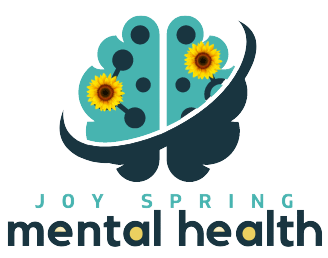Becoming a new mom can be isolating. At a time when new moms need more support than ever, it can be logistically challenging to find the time and energy to connect. It’s like you’ve never needed a friend more and you suddenly don’t have time for, relate to, or even have the friend you need. If you are lucky enough to have a supportive partner, it can be tempting to lean on this friend. And while finding your grove in that friend zone is important, that’s not the friend zone I’m referring to.
I’m talking about your inner voice-the friend zone in your brain.
No, this isn’t a mysterious anatomical structure of the brain. And, yes, this is a part of the brain that can be constructed by anyone. You just need to follow basic building tenets.
Design your plans.
The transition to parenthood can be a time filled with self-doubt. It is a new experience (even if you are already a parent and it is a new child). It is natural to seek input and guidance when we are learning something new. Unfortunately, when you become a parent, so much differing information, advice, and guidance are offered (solicited and unsolicited) that it is easy to become overwhelmed, confused, and feel pressured rather than supported. What many moms say is that they just need someone who can listen, help them consider their options without judgment or pressure, answer their questions, and let them vent without making them feel like a failure or like they are doing something “less than”. They want to connect with someone who will acknowledge their efforts and praise their successes. Likewise, they need someone who can give encouragement and empathy when they are navigating all the feelings and challenges that come with this transition. Wouldn’t it be nice if you could talk to yourself like this friend?
Prep your site.
When it comes to preparing your brain to become a portable, ever-present friend, you want to start with a survey. First, look at your history to see if there are any traumas that may need to be addressed. If so, remember that construction is usually a team effort and even with home remodeling, certain aspects require a trained professional. If you have trauma or anxiety that is overwhelming your resources, it is time to hire a professional.
Have you had good friendships in the past or do you have good friendships now that can serve as a reference point? What does your current friendship landscape look like? Once you build up your own brain’s ability to act as a friend, will you need to start recruiting other community members, or is your community strong already?
Do you have friends that can provide basic support (logistics, meals, etc) and emotional support? Do you have needs that could be outsourced?
Next, notice the areas where you are having unfriendly interactions, is this from external factors like unsolicited advice, social media commenters, or from your own thoughts? Is there grading work you need to do so that these unhelpful or harmful interactions are reduced or eliminated?
If your own brain has been more of an enemy than a friend, consider what kind of friend you are to others. Is this the kind of friend you want to be? If you find that you describe yourself in unflattering terms as a friend, it means that you need to take some time to consider your building plans again. Very often we can get stuck on our own descriptions of ourselves and may need to get professional help so we can see the other design possibilities. For example, if you describe yourself as a “people pleaser” or “perfectionist” and this feels like it is stuck in concrete and unchangeable and not serving you well, getting professional therapy may be needed.
Gather your tools.
When we recognize the power of treating ourselves as our own bestie, it can seem so simple, but for many people, their unfriendly interactions most often happen in their own thoughts. Thoughts of “you are an idiot”, “I can’t believe you just did that” and “you don’t know what you are doing” are common examples of the kinds of things we often say to ourselves even though we would never say this to a friend.
There are two essential tools that will help: mindfulness and commitment.
When we practice mindfulness, we are intentionally being aware of our own thoughts without being carried away by them. A good way to think of this is how you might listen to a friend-with curiosity but not judgment.
In order to practice mindfulness, we need a least a smidge of commitment.
This means that we willingly choose to be aware of our thoughts and when we notice that our thoughts are not friendly, we choose to work on understanding why and how we can make a change. For parents experiencing mood or anxiety symptoms, willingness to observe thoughts can be scary and feel unsafe. In that situation, you may need to choose to get professional help.
Get to work.
Now that you’ve identified the kind of friend you want to have, and the kind of friend you
want to be, and have chosen to start being that friend for yourself, it’s time to take action.
As you notice your thoughts and feelings or are in situations where you receive advice that causes you distress or overwhelm, ask yourself the following questions. Is this something I would say to a friend? How can I show up for my friend today so that they feel my love and support? If my friend were in this situation, what would I want them to know? I recommend practicing when you are calm and relaxed so that when anxiety or overwhelm occurs, you are ready with a friendly response.


